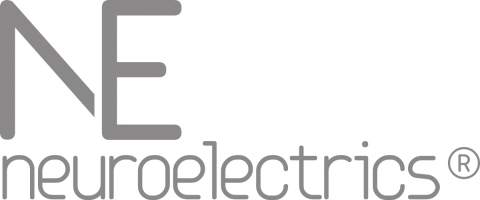Neuroelectrics Raises $17.5M to Advance Clinical Trials for the Treatment of Epilepsy and Major Depressive Disorder with a New Platform for Treating Brain Dysfunction
Neuroelectrics Raises $17.5M to Advance Clinical Trials for the Treatment of Epilepsy and Major Depressive Disorder with a New Platform for Treating Brain Dysfunction
Therapeutic platform for brain disorders uses targeted multi-channel neuromodulation to deliver personalized treatment protocols to patients anywhere.
CAMBRIDGE, Mass. & BARCELONA, Spain--(BUSINESS WIRE)--Neuroelectrics, a pioneer in brain stimulation technologies and therapies, has raised $17.5M in a Series A financing led by Morningside Ventures. The funds will be used to further develop Neuroelectrics’ non-invasive transcranial electrical stimulation (tES) therapeutic platform and to advance clinical trials in refractory focal epilepsy and at-home treatment of refractory depression.
“Neuroelectrics is developing a platform that builds upon the brain’s natural electrical properties to both understand and treat neurological dysfunction. Our goal is to offer a safe, non-invasive option that benefits those for whom effective treatments are unavailable,” said Ana Maiques, co-founder and CEO of Neuroelectrics. “Our investors share this vision, and we are grateful for their confidence and partnership.”
“Our mandate is to translate science into products that will change the way people live - paradigm-shifting innovation at the convergence of physical and life sciences,” said Stephen Bruso of Morningside Ventures. “By approaching disorders of the central nervous system using the natural signaling of the brain rather than focusing on one target and one receptor, we believe the Neuroelectrics approach could succeed in indications where traditional pharmaceuticals have had limited or no impact.”
Neuroelectrics’ Starstim® platform uniquely integrates three key components:
- a multi-channel head-piece for brain monitoring and targeted neuromodulation
- personalized treatment protocols based on extensive neuroscience research, data science, and the patient’s own physiological and anatomical data
- a cloud-based system for safe and controlled delivery of treatment protocols in the home setting
This proprietary platform technology has been utilized in hundreds of clinical studies by leading neuroscience research institutions worldwide.
Neuroelectrics leverages advances in neuroscience and cutting-edge data science to understand and treat the brain. The Starstim platform is powered by more than a decade of continuously improving algorithms from which comprehensive, personalized brain models and treatment plans can be derived.
“Our approach is science-based and computational, bringing together the data-driven physical science of the brain with established neuroscience principles and research. We believe many brain disorders can be addressed computationally with model-driven neuromodulation to the benefit of those with brain dysfunction,” said Giulio Ruffini, PhD, co-founder and Chief Scientific Officer at Neuroelectrics.
Treatment of Refractory Focal Epilepsy
The Epilepsy Foundation estimates that there are approximately 2.2M people in the US that have epilepsy. One-third of them do not respond adequately to medications and must live with seizures.
Seeking to address this unmet medical need, Neuroelectrics recently completed a pilot study (NCT02866240) of its Starstim tES system in twenty adult and pediatric patients with medically-refractory focal epilepsy. These patients experienced a 44% median reduction in seizure frequency in the eight-week post-treatment follow-up period relative to baseline, with four patients experiencing a ≥75% reduction in seizure frequency.
Co-Principal Investigator Alexander Rotenberg, MD, PhD, Professor of Neurology at Boston Children’s Hospital and Harvard Medical School, said: “We and our patients look forward to a non-invasive and non-pharmacologic option for those whose seizures have not been controlled by drugs or surgery. Our patients and families should expect to see clear seizure reduction along with improvements in well-being and quality of life.”
Neuroelectrics expects to commence a pivotal study (NCT04770337) evaluating the safety and efficacy of Starstim tES in patients with medically-refractory focal epilepsy in the third quarter utilizing a trial design similar to the pilot study.
At-Home Treatment of Major Depressive Disorder (MDD)
The National Institutes of Health (NIH) estimates that approximately 17.3M adults in the US have had at least one major depressive episode in the past year, with the majority of those qualifying for a diagnosis of Major Depressive Disorder (MDD). Unfortunately, approximately one-third of these individuals will not respond adequately to medication.
In February, Neuroelectrics initiated a pilot study (NCT04799405) led by principal investigator Alvaro Pascual-Leone, MD, PhD, Professor of Neurology, Harvard Medical School and Senior Scientist at the Arthur Marcus Institute for Aging Research, Hebrew SeniorLife, to treat patients with medically-refractory Major Depressive Disorder (MDD) at home. This study was motivated in part by a concern for patients who are candidates for other forms of neuromodulation therapy, including transcranial magnetic stimulation (TMS), but who might require an at-home alternative during the pandemic.
About Neuroelectrics
Neuroelectrics is developing a therapeutic platform that uses neuromodulation for the treatment of a range of neurological and psychiatric disorders. The platform combines safe and proven neuromodulation capabilities with remote-controlled delivery and personalized treatment protocols to restore and maintain brain health. Based in Cambridge, Massachusetts and Barcelona, Neuroelectrics has an expanding pipeline of computationally driven solutions for neurologic and psychiatric disease. Visit www.neuroelectrics.com.
About Morningside
Morningside Group was founded in 1986, by the Chan family of Hong Kong, to make private equity and venture capital investments. The group is managed by investment professionals who are entrepreneurial, have deep industry knowledge and are effective in the local environment in which they operate. In addition to its investment activities, Morningside Group is strongly committed to social responsibility. To learn more, visit www.morningside.com.
Contacts
Matt Burke - mattdavidburke@gmail.com
